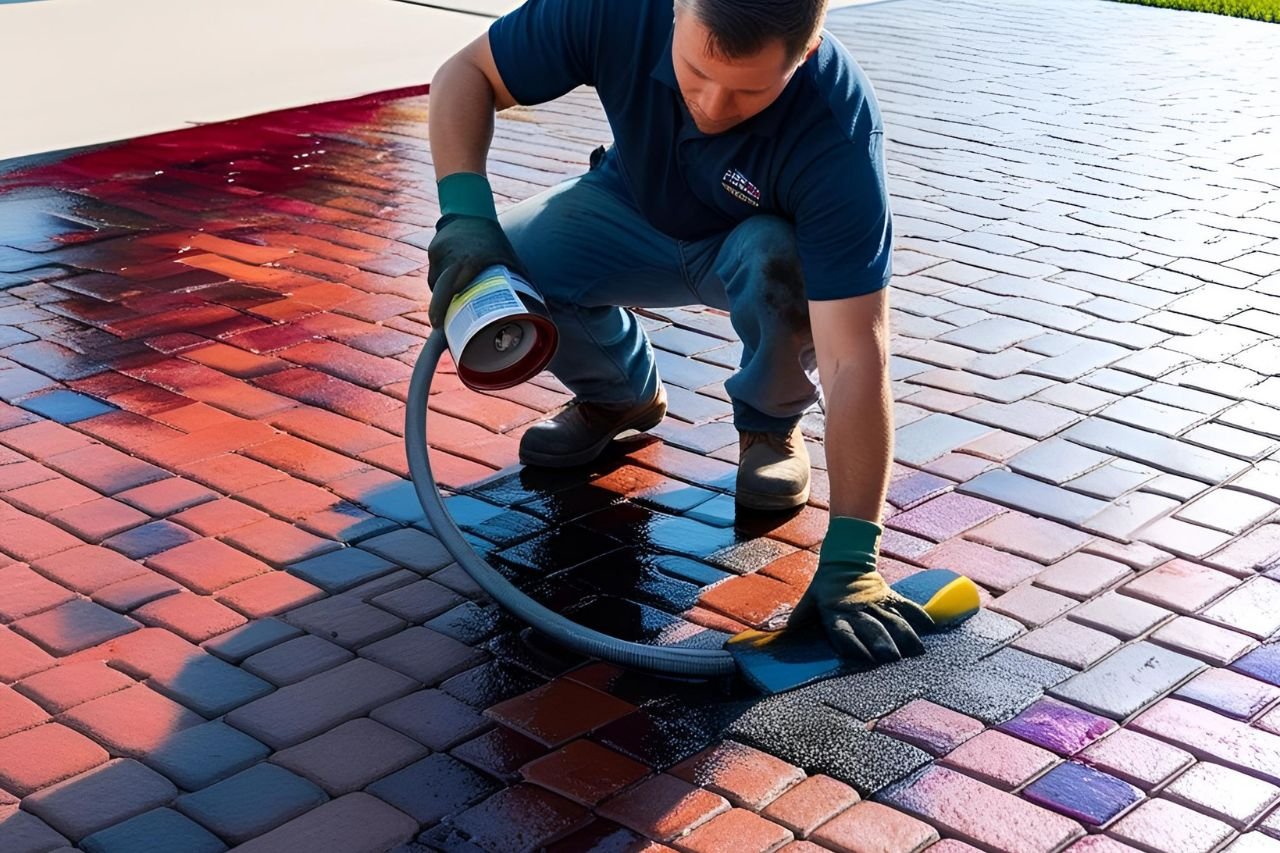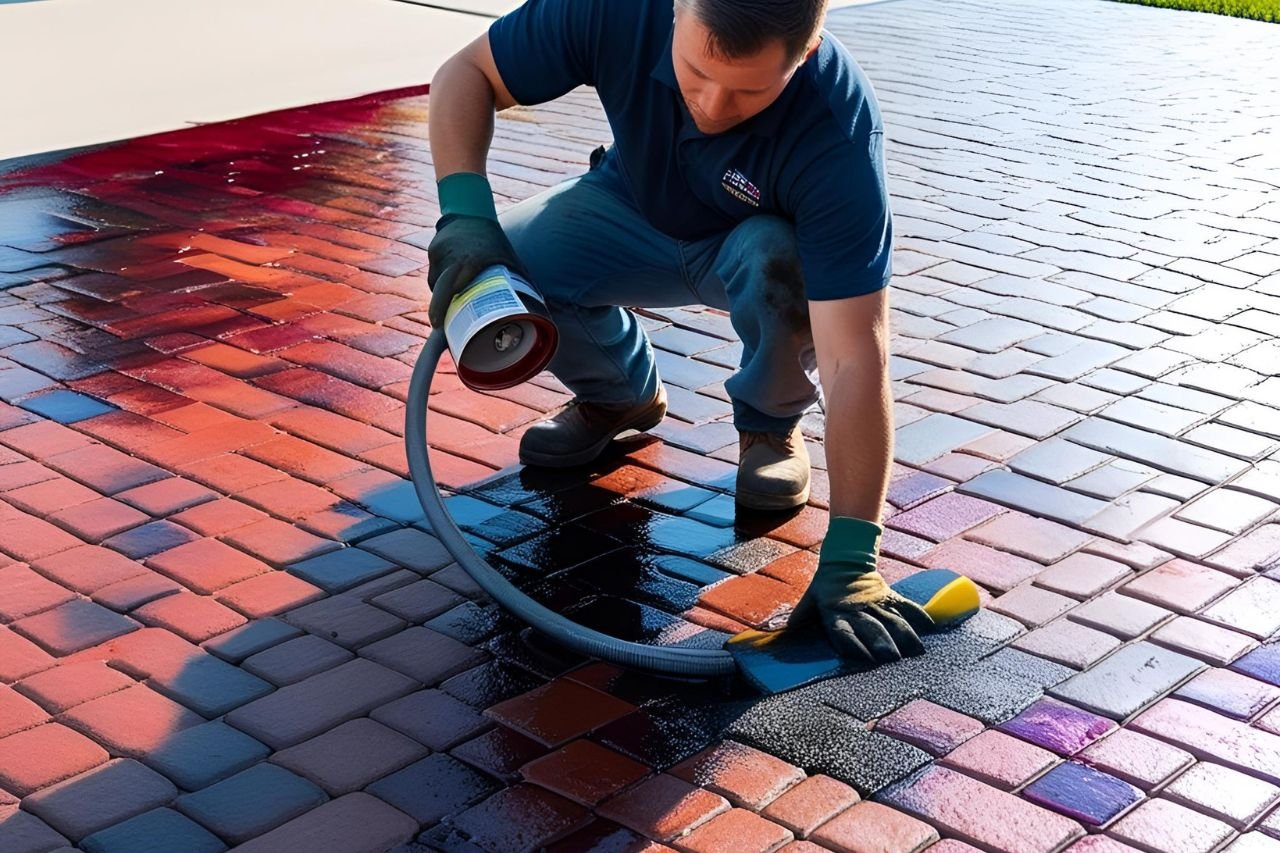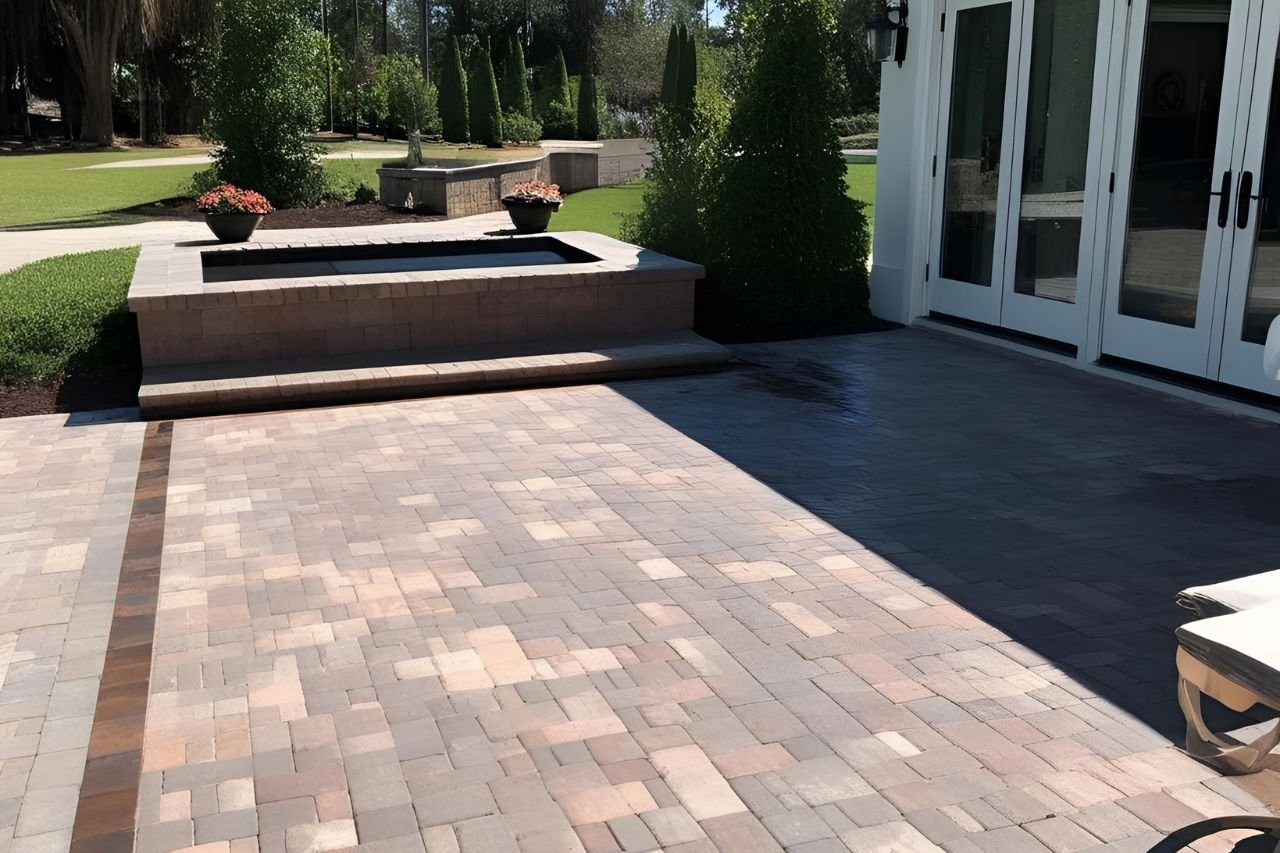Paver sealing is essential in Wesley Chapel’s climate to protect outdoor surfaces from Florida’s heat, moisture, and UV exposure. Sealing extends the lifespan of pavers, preserves their appearance, and guards against weather-related damage.
The Importance of Paver Sealing in Florida
Sealing pavers enhances durability and keeps them looking vibrant despite Florida’s challenging climate. Wesley Chapel experiences intense sunlight, heavy rains, and high humidity, which can degrade unsealed surfaces. Applying sealants forms a protective barrier that prevents discoloration, cracking, and mold growth, making it a necessary investment for homeowners.
How Does Sealing Prevent Weather Damage?
Wesley Chapel’s weather fluctuates between humid conditions and strong sunlight, which can break down unsealed pavers. Sealing creates a waterproof layer that reduces moisture absorption, preventing cracks and erosion. UV-resistant sealants protect pavers from color fading caused by prolonged sun exposure.
Proper sealing ensures pavers stay intact during heavy rainstorms, safeguarding against structural damage. For more details on the benefits of sealing, learn when and how often to seal pavers in Wesley Chapel.
Why Does Sealing Improve Aesthetics?
Sealing pavers enhances their natural color, making patios and driveways look newer and more polished. Wet-look sealants provide a glossy finish, while matte options retain a natural appearance. This treatment not only boosts curb appeal but also adds value to the property.
In Wesley Chapel, where outdoor spaces are often a focal point of homes, paver sealing helps maintain an attractive and well-kept look.
How Does Sealing Control Mold and Weeds?
Florida’s moisture-rich environment can lead to mold growth on unsealed pavers. Sealants reduce the risk by creating a surface that blocks moisture penetration. Additionally, sealing stabilizes joint sand, preventing weeds from sprouting between pavers.
Mold and weeds not only ruin the look of outdoor surfaces but can also weaken paver integrity over time. To recognize when resealing may be necessary, explore insights on signs that your pavers need resealing.
How Does Sealing Add Longevity?
Sealing protects pavers against wear and tear, particularly in high-traffic areas like driveways and patios. It prevents moisture from degrading materials and shields against stains caused by oil, grease, or organic debris. Regular application ensures pavers stay strong for decades.
With proper sealing, homeowners in Wesley Chapel can reduce the need for frequent repairs or replacements, saving both time and money.
Can Sealants Improve Safety with Slip-Resistant Options?
Certain sealants include slip-resistant additives that enhance traction, especially around pool decks or walkways. This feature reduces the risk of injuries caused by wet surfaces, particularly during Florida’s rainy season.
For driveways, safety can be further enhanced by combining high-quality pavers with protective sealants. To understand how pavers contribute to safer surfaces, review recommendations on professional paver sealing services in Wesley Chapel.
Does Sealing Make Cleaning Easier?
Sealed pavers are easier to maintain because they resist stains and dirt buildup. A simple wash with water and detergent keeps the surface clean and fresh. Unsealed pavers, on the other hand, often require frequent scrubbing to remove mold, algae, or oil stains.
For busy property owners in Wesley Chapel, sealing simplifies maintenance and keeps outdoor spaces looking their best year-round.
Benefits of Paver Sealing at a Glance
| Benefits of Sealing | Details |
|---|---|
| Weather Protection | Prevents cracks and fading caused by heat, rain, and UV rays. |
| Improved Appearance | Enhances color and adds either a matte or glossy finish. |
| Mold and Weed Resistance | Blocks moisture and stabilizes joint sand to prevent growth. |
| Increased Longevity | Shields against wear and tear, extending the lifespan of outdoor surfaces. |
| Lower Maintenance Needs | Resists dirt, stains, and debris, making cleaning faster and easier. |
When to Seal Pavers in Wesley Chapel
Pavers should be sealed within 3–6 months after installation. This gives the material enough time to settle while preventing early damage. Reapplying sealant every 2–3 years helps maintain its effectiveness and extends the life of the pavers.
Timing is important when sealing pavers, as weather plays a role in the process. Dry months are most suitable for applying sealants. For more guidance, refer to tips on choosing the best time to seal pavers based on Wesley Chapel’s weather.
Frequently Asked Questions
1. How often should pavers be resealed in Wesley Chapel?
Pavers should be resealed every 2–3 years to maintain protection and appearance.
2. Can paver sealing help prevent fading?
Yes, UV-resistant sealants protect pavers from sun exposure, keeping colors vibrant longer.
3. Do pavers need to be sealed immediately after installation?
No, it’s best to wait 3–6 months after installation to ensure proper settling before sealing.
4. What types of pavers benefit most from sealing?
Concrete, brick, and natural stone pavers all gain added durability and protection from sealing.
5. Does sealing stop water from pooling on pavers?
Sealing helps by creating a water-resistant surface, but proper drainage design is also necessary.
Call Us Today
Paver sealing is essential for maintaining the durability and beauty of outdoor surfaces in Wesley Chapel’s climate. Whether you need to protect a new installation or reseal existing pavers, professional services ensure effective results. Visit our services to learn more about expert sealing solutions tailored to your needs.


